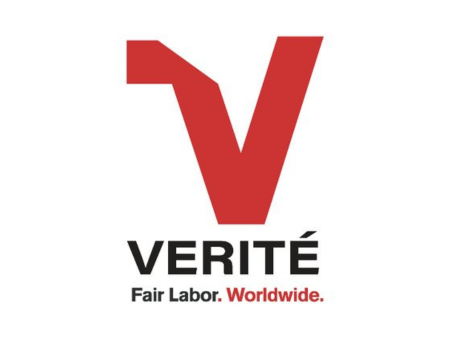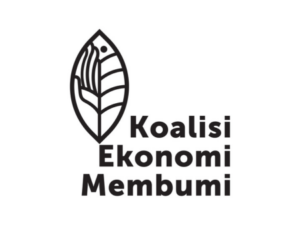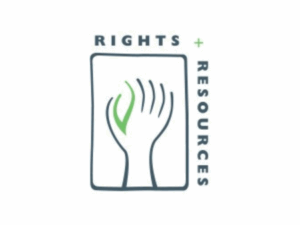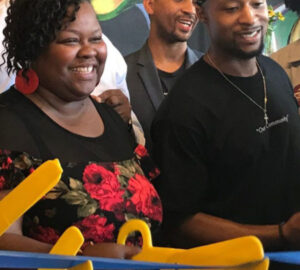Verité partners with businesses, governments, and civil society organizations to identify labor rights violations in supply chains. They support workers’ human rights while also assisting companies to ensure their supply chains are free of labor abuses. Working Capital Fund is a venture capital firm that invests in technology to reduce inequality and build responsible, sustainable global supply chains.
Dan Viederman of Verité and Working Capital Fund spoke with Ambika Samarthya-Howard on November 2, 2023. Click here to read the full conversation with insights highlighted.
Ambika Samarthya-Howard: Can you please introduce yourself and tell me a bit about what your organization does?
Dan Viederman: My name is Dan Viederman, and I received the Skoll Award in 2007 because I was the CEO of an organization called Verité. Verité is focused on creating safe, fair, and legal working conditions worldwide by leveraging the power of businesses and their supply chains. I’m currently still on the board of Verité, but as a partner in a venture capital firm that is trying to invest in early-stage ventures that will also lead in the direction of equitable working conditions and supply chains.
Ambika Samarthya-Howard: What does that mean in terms of your organization’s approach? Do you consider yourself a direct service organization?
Dan Viederman: Verité is not a direct service organization. I would say there are two lines of business. One, where I’m on the board but no longer running things, is consulting with individual companies in their supply chains to help them understand where they face serious labor rights risks and/or have contributed to serious labor rights risk violations or human rights violations. That was fee-for-service work for the most part, so working with the companies on a confidential basis in their supply chains, getting the privilege of access to their locations, their workplaces, and leveraging that into the privilege of talking about workers.
Ambika Samarthya-Howard: Why would any company want that? Wouldn’t they be almost afraid of having that done for them?
Dan Viederman: There are always good reasons why they should want it, and not enough of them do. There is evidence that well-managed businesses don’t have surprises, including labor and human rights surprises. Nothing’s going to come up to bite them because there’s a horrible health and safety problem in a workplace where they buy stuff from, or where there’s union violence and they get in the news. It’s not so much that the reputational damage is that significant, I don’t believe that’s the big vector, it’s rather that it causes all sorts of operational disruption for them.
The outsize risk, particularly now as laws have changed, is being unable to import a good that is held up at the border because it was made with forced labor or child labor. If we go back to the beginning of the story, the problem was identified in the early 2000s. It was identifying that these problems are systemic, and connecting individual companies to them. We worked with the companies, as I said, but we also got grant money to identify the systemic risks that all companies in the sector might face, such as forced labor in Malaysia for electronics companies, for example, or potential debt bondage among adolescent girls in Southern India t-shirt production. Those are not [issues] faced by individual companies. They’re faced by all companies in the sector.
Ambika Samarthya-Howard: When you started your organization, was it inspired by the changes that were happening in international law in the early 2000s, or was it just that you had that knowledge because of your own background in the industry? Or both?
Dan Viederman: The legal constraints have tightened over the last five years or so, in mostly a really positive way. If we’re talking about one of the lessons learned over time, it’s that the intersection of hard law and soft law is more powerful than one or the other. We started when it was becoming clear that the business operations for most of the companies selling to the United States had all of a sudden disintegrated, so to speak, from the vertically-integrated model that was predominant back in the 50s, 40s, and 30s, where everything was made either by the cobbler down the street or you made it yourself, to this outsourcing model that has gone, in some ways, to an extreme. Now, companies aren’t identifying themselves as designers and brands and they’re not creating ecosystems around a product, at least not in the tech world.
You will find all kinds of minerals in a supply chain. There are probably 60 different minerals in an iPhone. Even a relatively simple supply chain, like for a t-shirt, will go through five or six different steps. Those five or six different steps happen in different countries. It’s not only that the product crosses borders, but the workers cross borders too, and that adds a whole nother level of complexity. It’s an issue Verité really made its name on.
If you look at it in a positive way, within this complexity exists lots of potential for increased efficiency: the identification of strategic places, strategic supply, and strategic suppliers. It also allows the potential for surprise, risks, uncertainty, and disruption, which a well-managed business should want to get rid of. It doesn’t need to be there. It takes effort. Verité’s overall strength in the space was to make it visible, first of all, and then make it possible to solve.
Ambika Samarthya-Howard: Do you do that by going in and doing site visits?
Dan Viederman: I think the original version was [built around on-site visits], but the organization has evolved to where it’s operating at a much more systemic level that includes [working with] policymakers, helping to identify what the laws should be, and changing the laws. A good example would be the cross-border worker problem I mentioned. It was back in the late 90s, early 2000s, that my colleague Marie in Southeast Asia would go into factories in middle or emerging countries–not the poorest places where you might expect labor rights to be massively at risk–but places like Taiwan, for example, or Malaysia. She’d find this constellation of really horrible things like unpaid overtime and significant gender violence discrimination.
The short version of a long story, which we published in an initial report in 2004, is that we tied it back to the debt that those workers carry with them as they cross borders looking for a job. We called it the cost of a job, the idea that workers who want aspirationally to go find work overseas would have to pay recruiters each time.
Recently, the examples have been at the World Cup in Qatar, but back then there was much more apparel production in Taiwan and Malaysia and Saipan, strangely enough. Those workers would be facilitated to go overseas by one or a series of paid intermediaries, including labor brokers and labor recruiters. It wouldn’t necessarily be the workers paying; they would pay an initial person, maybe at the village level, who would cascade payments upwards. Until the time the worker has crossed the border and landed in Malaysia in an apparel or electronics facility, or in a domestic work situation, or [was hired as] a construction worker in the Middle East, he or she’s carrying sometimes as much as a year’s worth of salary debt. Of course, classic bait and switch, [the worker is] paid much less than he or she expected.
All of a sudden, whatever calculations they were able to make before they left don’t make sense anymore. They’re in a condition that the UN and the ILO [International Labour Organization] identify as forced labor because of the debt bondage. It was this identification of the risks of people crossing borders that we first recognized as a problem and began to highlight on a factory-by-factory, company-by-company basis.
It was almost a decade later that Apple first came to us, and we began to create a system-wide intervention for them as a company where they figured out where it was happening. I give them credit, as they put time and effort into helping their suppliers solve the problem and then held those suppliers accountable for the problem where they saw it again. There would be real sanctions and penalties on those suppliers [if it happened again]. Apple was an important enough player and a resourced enough player that the suppliers wouldn’t just say, “It’s too much trouble, we’re going to leave and work for someone else.” They wanted to keep working with Apple. The suppliers saw it as an opportunity to upgrade their own skills. That went from a workplace to a company and then other companies adopted the system as well.
In the early 2010s, we started to see evidence that this landed in policy. One of the most significant interventions was the so-called Federal Acquisition Regulations, which I think came out in 2014. It required all federal contractors in the US, a massive buyer of goods and services, to account for the presence or absence of laborer debt bondage and labor migration risk in their supply chains. It emerged tragically because there were contractors who were servicing the military in Iraq who had debt-bonded workers on their facilities. As that came to light, it was clear that the Department of Defense needed to do something, and to their credit, they stepped up and helped change this set of federal laws.
Ambika Samarthya-Howard: That’s remarkable. That’s great that you’re able to connect so many players and attributes. Beyond stories like that, how do you measure your success?
Dan Viederman: It’s really tricky. The way we started to do it, with Skoll’s help back in the day, was tracking instances where we could be aware that we had engaged a workplace that had a measurable, quantifiable number of workers. Because we had an ongoing engagement at that workplace, we could be pretty confident that, because of the Verité intervention facilitated by the company, or the employer, the supplier, things had changed. That’s one vector. But rarely did we have the longitudinal view. We didn’t really have long-term engagements with those individual workplaces.
What we tried to do, instead of just solving a problem, was to put management systems in place at that workplace that would be beneficial to the workplace. And beneficial to the workplace as it related to its buyers, [we would maintain] the ultimate brands we were working for, such that it would be maintained and preserved in the management system forum. Our goal was not just to fix the problem, but to fix the system that gave rise to the problem.
We also looked at how we change the institutions, to the extent that we were instrumental in changing the way in which a company had policies that they didn’t have before. So again, to take the same example, debt bondage of contracted workforce was not explicitly called out in what the companies called their codes of conduct. A code of conduct might say no forced labor in a supply chain, that is an obvious thing to say, but the company wouldn’t have any mechanism by which it would understand what that meant. We began to educate companies in hopes it would put in place different code language that referred to debt bondage as a manifestation of a specific problem: forced labor. They were then in a position to cascade that wording downward through their accountability systems. So their whole way of looking at their supply chains would change. That was another way we looked at it.
We also worked with some of the multi-brand institutions, where companies congregate, and got them to change the way in which they audit their supply chains, and then helped them build the tools to do so. The last vector of impact was this policy stuff, all of which remains hard to measure.
Ambika Samarthya-Howard: It’s not only hard to measure, it just takes so much time. It’s hard to measure all the indicators to get to that part that shows the work is being done.
Dan Viederman: Yes, very few people wanted to pay for it, and certainly not the multinationals, who were anywhere between 50 and 65 or 40 and 70, who are a chunk of our revenue on any given year. Very few really cared. There were maybe one or two multinationals genuinely looking at how to measure impact on the contracted workforce in their supply chain at this point. But we had a good theory of change. We paid attention to our own interventions. We knew they were high quality, we knew what the nature of the intersection was with the multinationals, and in many ways, we had to trust that things would continue to change. We’ve seen the overall policy environment change so dramatically, and we’ve seen the number of companies that began to adopt the language in many ways that we first put on the table. I think we can trust that a lot has happened, and it’s pretty significant for a lot of people without being able to quantify.
Ambika Samarthya-Howard: Looking back, what are some lessons you’ve learned, personal or professional?
Dan Viederman: You can’t do anything without money. I think institutionally, this whole board that we got, the presence of resources, it was essential to us to be able to scale the organization. I took aim at that particular problem I described, which showed up regularly, but it was never anything we could really build resources around and focus on. The institution-building grant from Skoll enabled us to take that on. It’s an obvious point to make, but it’s also pretty fundamental as I look across the organizations that we’re in community with these days, and resources remain scarce.
I think the other clear lesson of the space that we’ve been operating in is that you need a smart intersection of legal accountability and the enabling technology or tools such that legal accountability can be met. That transitions me into what I’m doing now [with the Working Capital Fund], which is venture capital, investing in tools and technologies that can enable big companies to actually embrace these issues in their supply chains on a comprehensive basis.
An example would be this new-ish German supply chain act, which requires any company operating at a certain size in Germany, and lots of big companies operate in Germany, to undertake mandatory human rights due diligence in their supply chains down to, I can’t remember exactly what the tier is, but down several tiers. Companies don’t know how to do this. They can’t. They don’t have the tools, they don’t have the technology. So the law is wonderful in the sense that it’s now a board-level conversation, where it used to be a conversation limited to a small group of people, the CSR [corporate social responsibility] team maybe, ideally maybe the legal people would pay little attention, maybe the procurement people at a big company would pay attention. Now it’s a high-level concern because it has the course of law. But that doesn’t mean that all of a sudden companies know what to do.
The toolkit that they’ve been operating with is this thing called a social audit, which sends a couple of people into a factory to ask some questions and get some information. It’s the only scaled intervention that companies have undertaken, and it’s deeply flawed and often corrupt. It’s not up to the task of really plumbing the depths, not only of hidden issues in a particular workplace, like forced labor, which people have an incentive to hide, much less the lower tiers. We just can’t get down that far. We need tools, technologies like those we’re investing in now, to enable the law to have the kind of impact up or down nine levels to where the minerals are coming from, for example, to cottons being farmed or crops being grown.
Ambika Samarthya-Howard: What have you felt to be the limitations of your work?
Dan Viederman: Not to be blunt, but capitalism. By which I mean the system of production, the one I described as this exploded system of production, this disintegrated [system], which we’re trying to knit back together and reintegrate vertically, exists because from the buyers on down, everybody wants to specialize in a particular thing. That is in their interest in terms of their ability to allocate resources and be strategic. It’s in their interest in terms of being able to avoid responsibility for things that they don’t want to take responsibility for, which can include normal things like employing people who grow cotton. No one’s saying that Nike should grow its own cotton. But at the same time, Nike has a lot of influence on the people who grow cotton, even if it’s indirect.
The brands that exist have both facilitated and embraced this outsourcing of outsourcing and this specialization all the way through supply chains. It’s very hard to knit it back together, such that they take responsibility for the human rights impacts that they have contributed to and experience. The financial incentives are misaligned, the logistical incentives are misaligned. The bulk of all these businesses that we’re trying to get to pay more attention to human rights really are focused much more on just their day-to-day survival and the production stuff. Even when we have pretty robust conversations with, or identify real significant problems within supply chains and big companies, the people we’re talking to for the most part, and by we I mean the community, are still a sideshow. That’s maybe a little disrespectful, but they’re not necessarily at the center.
Most big companies believe that they have these kinds of risks pretty well taken care of, even if they don’t, which is why journalism and advocacy have been so important in driving attention. It’s why the middle ground, fact-based research that Verité has done, and that we’re now supporting at the Working Capital Fund, is so necessary to begin to highlight both the systemic nature and the solutions that exist. It’s not just leaving people with yet another advocacy campaign telling them how horrible they are. It’s adding in [actionable feedback]: If you adopt this and this, if you take this code language and implement this audit protocol, adopt this worker voice technology, or reach out with this tool, you can take steps to make a meaningful impact. Even if we don’t know exactly how many people that will be, ultimately it’s a lot. Anytime a big company acts, it’s a lot of people.
Ambika Samarthya-Howard: I know you’re not really with Verité anymore, but can you share anything about the future, and what’s to come in the next five years?
Dan Viederman: The future is continuing to move beyond the manufacturing space. Manufacturing is complex enough. I’ll reflect back on work we did starting probably 11 years ago with, slightly controversially, Philip Morris International, which showed up on the front page of the New York Times. They had child labor in their Kazakh tobacco growing, and they wanted to solve the problem. Their business model was profitable enough that it would not require them to have children sourcing tobacco and getting green tobacco sickness.
We agreed to work with them to help, feeling that the children of tobacco farmers deserved good quality corporate accountability as much as the children of cocoa farmers do. The conditions for doing so were that all the tools, approaches, technology, and learning that we did with them, and all the findings that we undertook, would be public, and the toolkit was something that we could ultimately make available to all of their agricultural suppliers.
Now, a decade in, that toolkit is pretty complete and comprehensive, and Verité can make it available to anyone else sourcing from smallholders, no matter the crop. It’s a set of tools for how to efficiently and effectively integrate field technicians into the accountability and information-gathering process. That includes how to support individual farmers with an understanding of how to help their kids be safe on the farm or wherever they have to work, or with child work versus child labor, forced labor, everywhere, all the way up to what kinds of protocols and processing code language and corporate policy is useful.
The working conditions on smallholder farms, on plantations, or in any sort of agricultural environment, are really important because it’s mostly a migrant workforce, or it’s a very poor workforce with very poor families. They don’t have the institutional health management systems or the investment by which they can go and create different protections on-site. They really need much more assistance. How to provide assistance at the scale of, for example, 160,000 cocoa farmers for a particular cocoa company, or literally millions of tobacco farmers around the world with Philip Morris, is just a different order of magnitude. Now, this work has become a toolkit that can be replicated into this area that has resisted the improvement that we have seen in many manufacturing supply chains in the past 20 years.
Ambika Samarthya-Howard: Do you have any insights now, looking back, about things you would’ve done differently?
Dan Viederman: I would have staffed people. I would’ve promoted sooner. It took us a long time to have the money to hire and then to find the right person who became a chief commercial officer, a business development person. It feels almost silly to say, but having a great salesperson out there. When you’re trying to sell services to big companies, being accountable in that regard is just essential. It took the Skoll Award until I could hire operations people and build those sorts of systems. Again, it goes back to this need for resources. I think it’s inherent to those of us who are really impact-focused and aspirational to believe we can do more than we can do.
Now in my dotage, as I’m on more boards and operating more from a slight distance of board level into companies, it’s really about getting resources and using them efficiently as opposed to just believing that if you just work harder, it’ll all happen. I think all of us will have some form of real burnout.
The other more programmatic insight would be that we provided a service to a certain set of people within a company, and we were really valuable to them. I would’ve pushed harder to expand beyond that corporate responsibility set of people and begun to talk with other people, to find the other powerhouses within the companies and find a toolkit that really meant something to them. But that wasn’t where we were getting paid. There’s always a conflict between what you want to do and the budget that you have. I would’ve found the higher points of influence sooner, had it been possible. I’m sure I was thinking about it at the time. It was just difficult, and no one was taking my phone calls. So it’s easy to say, but the big shift has been the broadening. I wish that had happened sooner, or we had figured out how to make that happen sooner.
Another reflection, which is a recent challenge, in my role now [with Working Capital Fund], is that we’re trying to make equity investments like venture capital, and we’re trying to do it in that labor recruitment space. It’s such a perverse space because it’s corrupt, and essentially all workers are subsidizing the companies that they work for by paying debt or by taking loans out. But it’s beginning to change, and we’re beginning to see little green shoots of responsible labor recruitment.
The last reflection is just that it takes longer than you think it’s going to take. This is now an issue that we, at Verité, have been working out for a good 20 years. We’re still not there yet. That’s a source of real frustration. I’m trying to take hope from the fact that the landscape looks dramatically different than it did 20 years ago. [It’s now an issue] no one doubts and everybody pays attention to, and it is even enshrined in hard law to some extent. It’s a problem that is just so completely illogical from the buyer side. It doesn’t make sense to me that it still exists, even though there’s obviously very good reason why it does. Most of those are financial, deep down the supply chain.
Ambika Samarthya-Howard: That’s really interesting, thank you for taking the time to talk with me today.
Click here to read the full conversation with insights highlighted.
Ambika Samarthya-Howard (she/her) is the Solution Journalism Network’s Chief Innovation Officer: She leads on innovation and technology, leverages communication platforms for the network strategy and creates cool content. She has an MFA from Columbia’s Film School and has been creating, teaching and writing at the intersection of storytelling and social good for two decades. She has produced content for Current TV, UNICEF, Havas, Praekelt.org, UNICEF, UNFPA, Save the Children, FCDO, Global Integrity and Prism.
* This interview has been edited and condensed.
Read more insights from organizations supporting worker’s rights.







